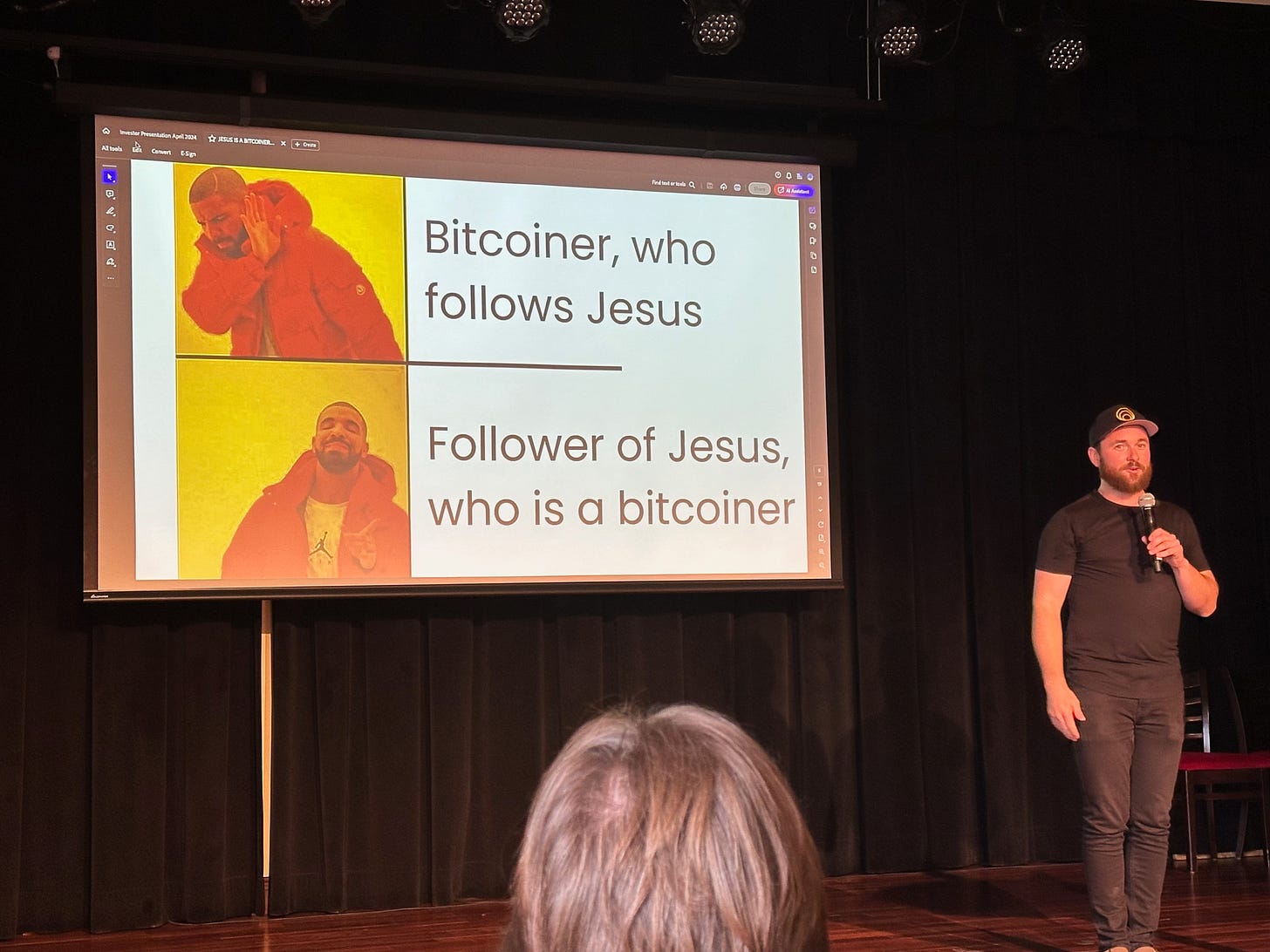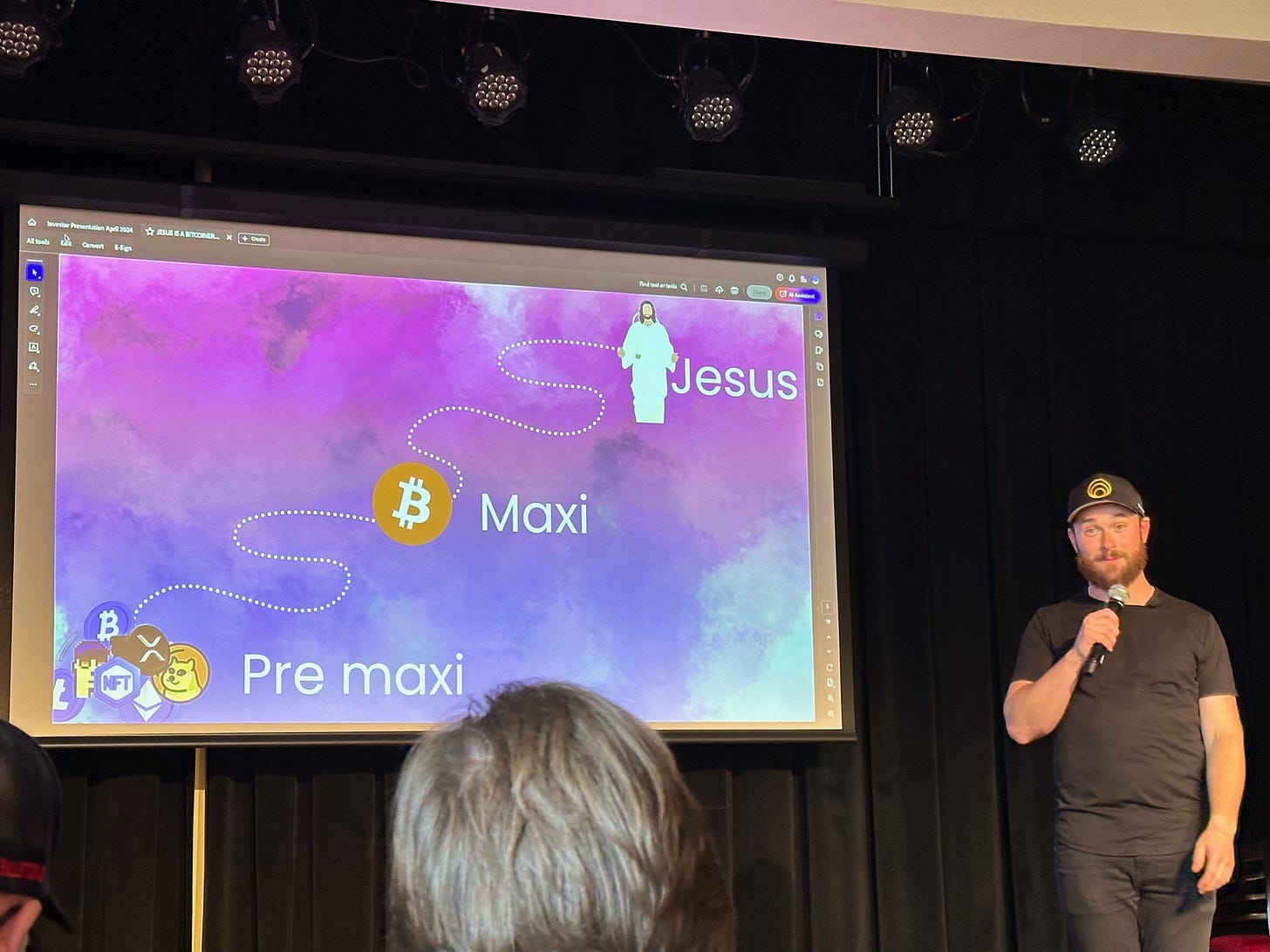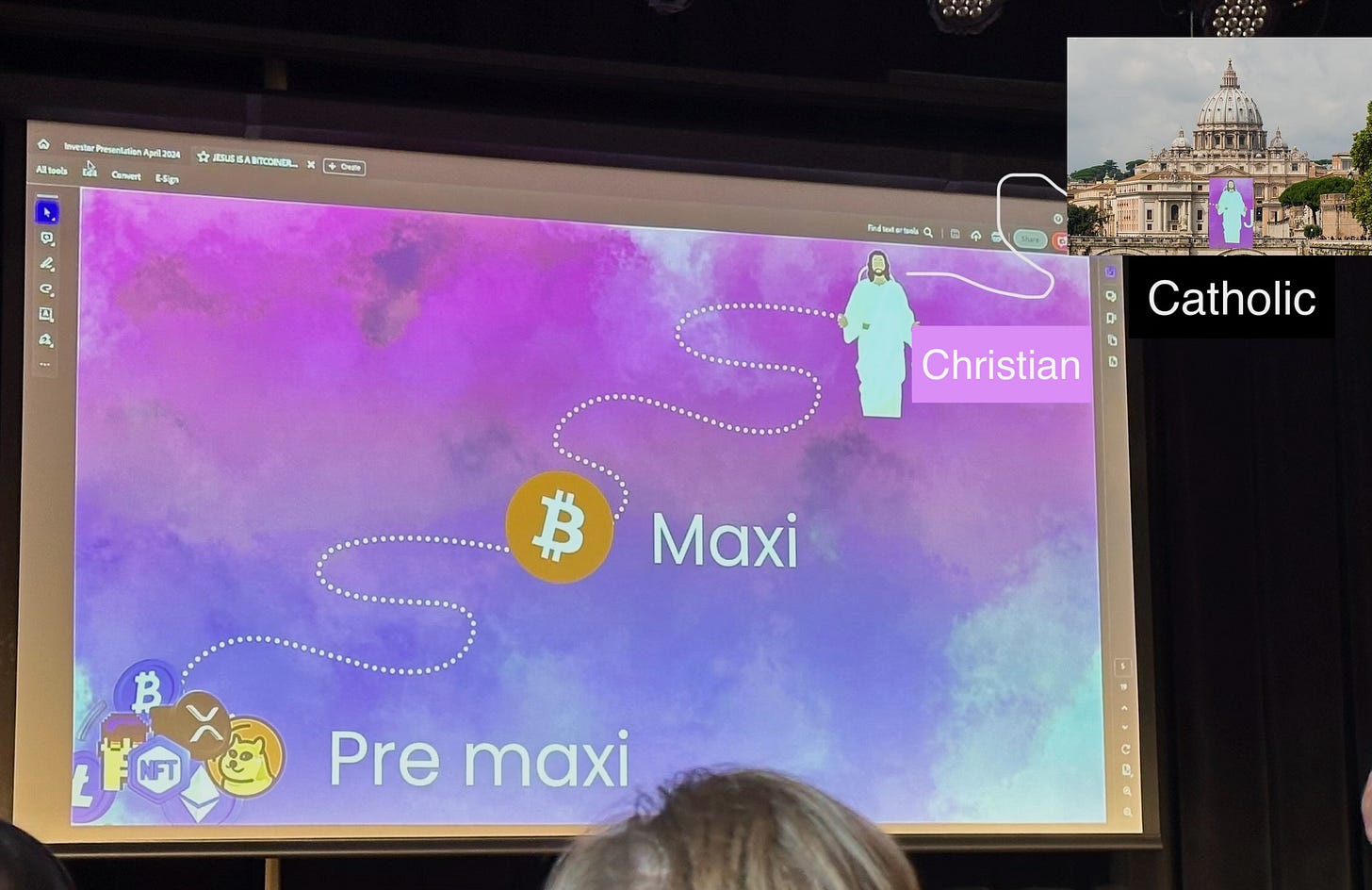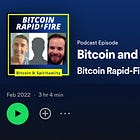Bitcoiners are becoming Christian. Why?
This is so weird
I was at the 2nd Annual Canadian Bitcoin Conference last weekend. My favorite presentation was side-stage talk by Adam O’Brien of Bitcoin Well where he shared his story of following Christ.
The talk was called, “Jesus is a Bitcoiner.”
Baptisms and deepening conversions
Bitcoiners are getting baptized, like my friend Tomer.
Bitcoiners who are Christian are becoming more Christian, like Adam.
I followed this path that Adam laid out in the next part of his talk:
The “crypto” to Christ path
Pre-maxi (pre-maximalist) means you own cryptocurrencies that aren’t Bitcoin. You trade DOGE. You might own Bitcoin too. But you’ll be skeptical of it, probably.
Maxi means Bitcoin maximalist. You only own Bitcoin. It is solving broken money, and Austrian economics says money tends to one, so it’s stupid and immoral to support the other ones.
Christian. You follow Christ. For many Bitcoiners this is a denomination of Protestantism. For me it was general Christianity while church shopping. I read Twitter threads from atheist Bitcoiners who loved Jesus as a teacher, attended Mass listening to the gospels in Mexico, and attended Evangelical and Baptist Bible studies online.
My path had one more step, though:
The Church
After a year in general Christianity I became Catholic.
Bitcoiner Pierre Rochard did the same.
Why is this happening?
And what does it mean? I don’t know.
My first guess when people ask me is, “Bitcoiners love truth.” Since Christ is The Truth, they’ll gravitate to Him.
The Bitcoin blockchain is a public ledger where all transactions are recorded. This transparency makes it difficult to alter or manipulate transaction data, creating a system based on verifiable truth.
Whatever it may be, we keep pointing to unbacked fiat currency and saying there’s a problem, and that Bitcoin is a new solution worth stewarding.
Bitcoin 101 Tip of The Day
Bitcoin has a finite supply of 21 million coins.
My AI assistant says this “mirrors the concept of divine scarcity in creation.”
I don’t remember this concept in RCIA class so I’ll leave you to ponder how it connects to the stories above.
Divine scarcity is a concept that isn't universally defined, but it touches on the idea that God created the world with a set amount of resources.
Limited resources: It reflects the idea that God didn't create an infinite universe with endless bounty. There are limitations, which some interpret as a way to encourage human creativity and innovation in managing those resources.
Value and purpose: Scarcity can imbue things with value and purpose. We appreciate things more when they're not readily available. This aligns with the concept of stewardship, where humans are entrusted with caring for God's creation.





